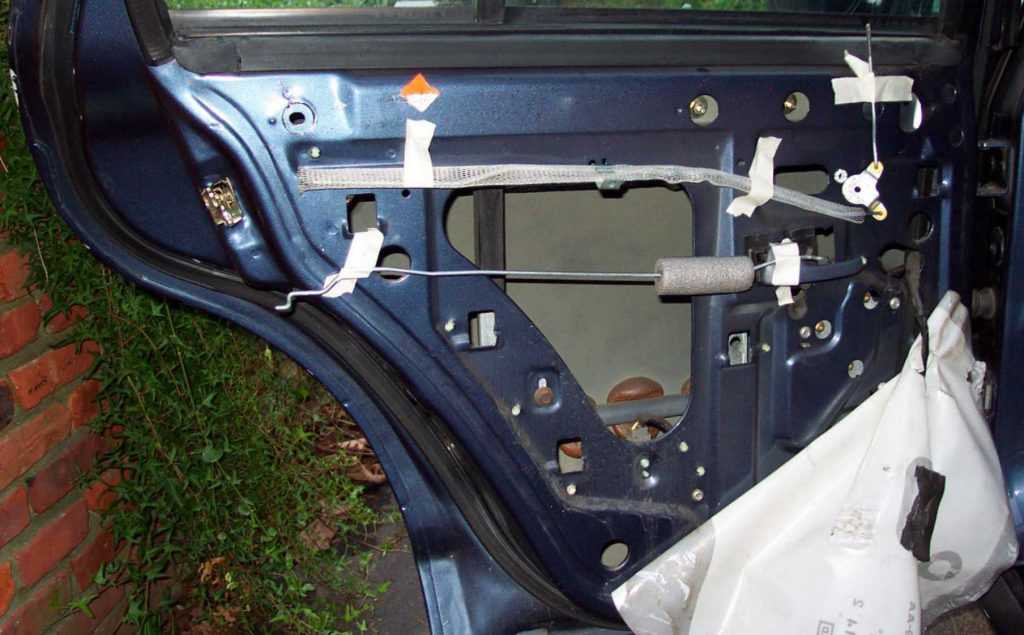Are Car Repairs a Fixed Expense? Budgeting Insights
Are Car Repairs A Fixed Expense? No, car repairs are generally not a fixed expense; they are variable. Instead of worrying about these unpredictable repair costs, explore high-quality auto repair tools at CARDIAGTECH.NET, and you can better manage and even reduce these expenses. Let’s dive into the details of fixed versus variable expenses and how to budget for them, including some practical tips to save money and make informed decisions about car maintenance and tools.
1. Understanding Fixed vs. Variable Expenses
To understand whether car repairs are a fixed expense, it’s essential to know the difference between fixed and variable expenses. Fixed expenses are consistent costs that remain the same over a period, while variable expenses fluctuate based on usage or need.
1.1. Fixed Expenses
Fixed expenses are those that remain relatively constant over a period, typically a month. These expenses are predictable and form the foundation of a budget.
- Definition: Fixed expenses are costs that stay consistent each month, making them easy to budget for.
- Examples:
- Rent or Mortgage Payments
- Car Payments
- Insurance Premiums
- Loan Payments
1.2. Variable Expenses
Variable expenses, on the other hand, change from month to month. These expenses can be influenced by your choices and are often less predictable.
- Definition: Variable expenses are costs that fluctuate, making them harder to predict but also offering opportunities to save.
- Examples:
- Groceries
- Gasoline
- Entertainment
- Car Repairs
- Medical Bills
2. Why Car Repairs Are Considered Variable Expenses
Car repairs fall into the category of variable expenses because they are neither predictable nor consistent.
2.1. Unpredictability
Car repairs are often unexpected. You can’t always anticipate when your car will need maintenance or when a part will break down.
2.2. Fluctuating Costs
The cost of car repairs varies widely depending on the issue. A simple oil change will cost much less than replacing a transmission.
2.3. Impact of Driving Habits
Your driving habits and the conditions you drive in can also affect how often your car needs repairs. Frequent stop-and-go traffic or driving on rough roads can increase wear and tear.
3. Budgeting for Car Repairs: A Practical Approach
While car repairs are variable, you can still plan for them in your budget. Here’s how:
3.1. Emergency Fund
Having an emergency fund is crucial for covering unexpected expenses like car repairs. Aim to save at least 3-6 months’ worth of living expenses. According to a study by the Federal Reserve, many Americans struggle to cover unexpected costs, highlighting the need for an emergency fund.
3.2. Sinking Fund
A sinking fund is a savings account specifically for a future expense. You can set up a sinking fund for car repairs and contribute to it regularly.
- How to Calculate: Estimate the annual cost of car repairs (based on past expenses or advice from a mechanic) and divide it by 12 to determine your monthly contribution.
3.3. Budgeting Methods
Several budgeting methods can help you manage variable expenses like car repairs:
- 50/30/20 Rule: Allocate 50% of your income to needs, 30% to wants, and 20% to savings and debt repayment.
- Zero-Based Budgeting: Assign every dollar a purpose, ensuring your income minus your expenses equals zero.
- Envelope System: Use cash envelopes for different spending categories to control overspending.
4. Strategies to Reduce Car Repair Costs
While you can’t eliminate car repairs, you can take steps to minimize these expenses.
4.1. Regular Maintenance
Following the manufacturer’s recommended maintenance schedule can prevent major issues.
- Oil Changes: Regular oil changes keep your engine running smoothly.
- Tire Rotations: Rotating your tires extends their lifespan and ensures even wear.
- Brake Inspections: Checking your brakes regularly can prevent costly repairs.
4.2. Shop Around for Insurance
Insurance is your safety net when unexpected repairs arise from accidents or unforeseen incidents. It’s wise to shop around and compare car insurance quotes regularly. Each insurer has its own method for calculating premiums, and prices can differ considerably. Factors that influence your car insurance rates include your driving history, the make and model of your car, and your location.
4.3. Learn Basic Car Maintenance
Knowing how to perform basic maintenance tasks can save you money on labor costs. According to a survey by the American Automobile Association (AAA), labor costs account for a significant portion of car repair expenses.
- Changing a Tire: Learning to change a flat tire can save you from calling a tow truck.
- Replacing Wiper Blades: This is a simple task that can improve visibility and safety.
- Checking Fluid Levels: Regularly checking and topping off fluids can prevent engine damage.
4.4. Invest in Quality Tools
Having the right tools can empower you to handle more complex repairs yourself. CARDIAGTECH.NET offers a wide range of high-quality auto repair tools that can help you save money on labor costs.
- Diagnostic Scanners: These tools can help you identify the cause of a problem before taking your car to a mechanic.
- Socket Sets: A good socket set is essential for many car repairs.
- Wrenches: Having a variety of wrenches can help you tackle different tasks.
5. The Role of CARDIAGTECH.NET in Managing Car Repair Expenses
CARDIAGTECH.NET provides tools and equipment that empower car owners and professionals to manage car repair expenses more effectively.
5.1. Diagnostic Tools
Diagnostic tools can help you identify the problem before taking your car to a mechanic, preventing unnecessary repairs. According to a study by the National Institute for Automotive Service Excellence (ASE), accurate diagnostics can significantly reduce repair costs.
5.2. Quality Equipment
Investing in quality equipment from CARDIAGTECH.NET ensures that you can perform repairs correctly and efficiently. High-quality tools are more durable and reliable, saving you money in the long run.
5.3. Educational Resources
CARDIAGTECH.NET offers educational resources to help you learn about car maintenance and repair. This knowledge can empower you to handle more tasks yourself, reducing your reliance on expensive mechanics.
6. Case Studies: Real-Life Examples
Let’s look at a couple of real-life examples to illustrate how budgeting and smart maintenance can impact car repair expenses.
6.1. Case Study 1: Sarah’s Story
Sarah, a 30-year-old professional, had always relied on mechanics for all her car repairs. She faced frequent breakdowns and high repair bills. After learning about budgeting and basic maintenance, she started setting aside money each month for car repairs and invested in a diagnostic scanner from CARDIAGTECH.NET.
- Results: Sarah was able to identify and fix minor issues herself, saving hundreds of dollars each year. She also negotiated better prices with mechanics by knowing the exact problem.
6.2. Case Study 2: John’s Experience
John, a 45-year-old small business owner, used to ignore regular maintenance, leading to major repairs. He decided to follow the manufacturer’s maintenance schedule and purchased quality tools from CARDIAGTECH.NET.
- Results: John significantly reduced his car repair expenses and extended the life of his vehicle. He also felt more confident and in control of his car maintenance.
7. How to Create a Car Repair Budget
Creating a budget for car repairs involves estimating potential costs and setting aside funds to cover them. Here’s a step-by-step guide:
7.1. Review Past Expenses
Look at your car repair bills from the past few years to get an idea of how much you typically spend.
7.2. Research Common Repairs
Research the cost of common repairs for your car model. Websites like RepairPal and Edmunds offer estimates.
7.3. Set a Monthly Savings Goal
Divide your estimated annual repair cost by 12 to determine your monthly savings goal.
7.4. Track Your Spending
Use a budgeting app or spreadsheet to track your car repair expenses and ensure you stay within budget.
7.5. Adjust as Needed
Review your budget regularly and adjust your savings goal based on your actual expenses and any changes in your car’s condition.
8. The Importance of Preventative Maintenance
Preventative maintenance is key to minimizing car repair expenses. By addressing small issues early, you can prevent them from becoming major problems.
8.1. Oil Changes
Regular oil changes keep your engine lubricated and prevent wear. Most manufacturers recommend changing your oil every 3,000 to 7,500 miles.
8.2. Tire Care
Proper tire inflation and regular rotations extend the life of your tires and improve fuel efficiency. Check your tire pressure monthly and rotate your tires every 6,000 to 8,000 miles.
8.3. Brake Service
Regular brake inspections and maintenance ensure your brakes are functioning properly. Replace brake pads and rotors as needed.
8.4. Fluid Checks
Check and top off fluids regularly, including coolant, brake fluid, power steering fluid, and windshield washer fluid.
9. Utilizing Technology for Car Maintenance
Technology can play a significant role in helping you manage car maintenance and repair.
9.1. Diagnostic Apps
Several smartphone apps can connect to your car’s computer and provide diagnostic information. These apps can help you identify potential issues early.
9.2. Maintenance Reminders
Set up maintenance reminders on your phone or in your car’s computer to ensure you don’t miss important service intervals.
9.3. Online Resources
Websites and online forums offer a wealth of information about car maintenance and repair. Take advantage of these resources to learn about your car and how to care for it.
10. Long-Term Benefits of Proactive Car Care
Taking a proactive approach to car care offers numerous long-term benefits.
10.1. Reduced Repair Costs
Regular maintenance and early detection of problems can significantly reduce your overall repair costs.
10.2. Extended Vehicle Lifespan
Proper care can extend the life of your vehicle, allowing you to get more value from your investment.
10.3. Improved Safety
Well-maintained cars are safer to drive, reducing your risk of accidents and injuries.
10.4. Higher Resale Value
Cars that have been well-maintained typically have a higher resale value.
11. Expert Advice on Car Repair Budgeting
To provide a well-rounded perspective, here’s some expert advice on budgeting for car repairs:
11.1. Financial Advisors
Financial advisors recommend including car repairs in your overall budget and setting up a dedicated savings account. According to a survey by the Certified Financial Planner Board of Standards, only a small percentage of Americans have a comprehensive financial plan that includes budgeting for unexpected expenses like car repairs.
11.2. Mechanics
Mechanics advise following the manufacturer’s maintenance schedule and addressing small issues promptly. They also recommend investing in quality parts and tools.
11.3. Automotive Experts
Automotive experts emphasize the importance of preventative maintenance and educating yourself about your car. They recommend using online resources and diagnostic tools to stay informed.
12. Common Mistakes to Avoid
Budgeting for car repairs can be challenging, and it’s easy to make mistakes. Here are some common pitfalls to avoid:
12.1. Ignoring Maintenance
Ignoring regular maintenance is one of the biggest mistakes you can make. It can lead to major problems and costly repairs.
12.2. Delaying Repairs
Delaying repairs can cause further damage to your car and increase the cost of repairs.
12.3. Overspending on Wants
Overspending on non-essential items can leave you short on funds for car repairs.
12.4. Neglecting Emergency Savings
Failing to build an emergency fund can leave you vulnerable to unexpected car repair expenses.
13. Conclusion: Taking Control of Your Car Repair Expenses
While car repairs are variable expenses, you can take control by budgeting effectively, performing regular maintenance, and investing in quality tools from CARDIAGTECH.NET. By following the tips and strategies outlined in this article, you can reduce your car repair expenses, extend the life of your vehicle, and enjoy greater peace of mind.
Understanding the difference between fixed and variable expenses is essential for effective budgeting. By recognizing that car repairs are variable and planning accordingly, you can better manage your finances and avoid surprises.
Ready to take control of your car repair expenses? Visit CARDIAGTECH.NET today to explore our wide range of diagnostic tools, equipment, and educational resources. Our products are designed to empower you to handle more car maintenance tasks yourself, saving you money and keeping your vehicle in top condition. Don’t wait until your next breakdown – invest in your car’s future today.
Contact us at 276 Reock St, City of Orange, NJ 07050, United States, or reach out via WhatsApp at +1 (641) 206-8880. Let CARDIAGTECH.NET help you drive with confidence and peace of mind.
14. FAQs About Car Repair Expenses
14.1. Are car repairs tax-deductible?
Generally, car repairs are not tax-deductible for personal use. However, if you use your car for business, you may be able to deduct car repair expenses as part of your business expenses. Consult a tax professional for advice tailored to your situation.
14.2. How can I find a trustworthy mechanic?
Finding a trustworthy mechanic involves doing some research and asking for recommendations. Check online reviews, ask friends and family for referrals, and look for mechanics certified by the National Institute for Automotive Service Excellence (ASE). Always get a written estimate before authorizing any repairs.
14.3. What is the best way to pay for car repairs?
The best way to pay for car repairs depends on your financial situation. If you have an emergency fund or sinking fund, use those funds. If not, consider using a credit card with a low interest rate or a personal loan. Avoid using high-interest payday loans or title loans.
14.4. How often should I get my car serviced?
You should get your car serviced according to the manufacturer’s recommended maintenance schedule. This schedule is typically found in your car’s owner’s manual. Following this schedule can help prevent major problems and extend the life of your vehicle.
14.5. What are the most common car repairs?
The most common car repairs include:
- Oil changes
- Tire replacements
- Brake repairs
- Battery replacements
- Spark plug replacements
14.6. Can I negotiate car repair costs?
Yes, you can often negotiate car repair costs. Get multiple estimates, ask for a breakdown of the costs, and inquire about discounts. You can also ask if the mechanic will use aftermarket parts instead of OEM parts to save money.
14.7. Is it worth it to buy an extended warranty for my car?
Whether an extended warranty is worth it depends on your car’s reliability and your risk tolerance. If your car is prone to breakdowns or you want peace of mind, an extended warranty may be worth the cost. However, read the fine print carefully and compare the cost of the warranty to the potential repair costs.
14.8. How can I tell if a mechanic is overcharging me?
To tell if a mechanic is overcharging you, get multiple estimates and compare them. Ask for a detailed breakdown of the costs and research the average cost of the repairs online. If a mechanic is charging significantly more than the average, it may be a sign of overcharging.
14.9. What should I do if I can’t afford a car repair?
If you can’t afford a car repair, explore your options. Ask the mechanic if they offer payment plans or financing. Consider using a credit card with a low interest rate or a personal loan. You can also try to negotiate the cost of the repairs or seek assistance from local charities or non-profit organizations.
14.10. How does CARDIAGTECH.NET help with car repair budgeting?
CARDIAGTECH.NET offers diagnostic tools and equipment that allow you to identify and address car issues early, potentially preventing costly repairs. By investing in quality tools and learning how to perform basic maintenance tasks, you can reduce your reliance on expensive mechanics and take control of your car repair expenses.
15. Actionable Steps to Lower Car Repair Costs
To help you start saving money on car repairs right away, here are some actionable steps you can take:
- Review Your Car Insurance Policy: Understand your coverage and shop around for better rates.
- Schedule a Car Maintenance Check: Take your car to a trusted mechanic for a comprehensive check-up.
- Create a Car Repair Budget: Estimate your annual car repair costs and set up a monthly savings goal.
- Invest in Diagnostic Tools: Purchase a diagnostic scanner from CARDIAGTECH.NET to identify issues early.
- Learn Basic Car Maintenance: Educate yourself about car maintenance and perform simple tasks yourself.
- Track Your Spending: Use a budgeting app or spreadsheet to track your car repair expenses.
- Adjust Your Driving Habits: Drive safely and avoid aggressive driving to reduce wear and tear on your car.
- Stay Informed: Follow automotive blogs and forums to stay up-to-date on car maintenance tips and advice.
- Follow the Maintenance Schedule: Adhere to the manufacturer’s recommended maintenance schedule to prevent major problems.
- Contact CARDIAGTECH.NET: Reach out to CARDIAGTECH.NET at +1 (641) 206-8880 for expert advice and high-quality auto repair tools.
By implementing these steps, you can take control of your car repair expenses and enjoy a safer, more reliable vehicle. Remember, proactive car care is the key to long-term savings and peace of mind.






